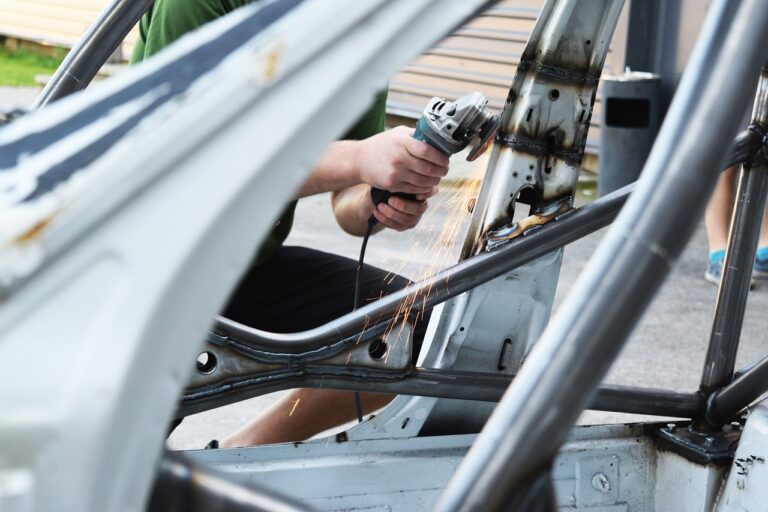Trends in Fuel Injector Cleaning and Maintenance Techniques
bit bhai 9, radhe exchange, lotus365.win login:Fuel injectors play a crucial role in the proper functioning of a vehicle’s engine. They are responsible for delivering the right amount of fuel into the combustion chamber at the right time. Over time, fuel injectors can become clogged with dirt, debris, and other contaminants, leading to poor engine performance, reduced fuel efficiency, and increased emissions. To prevent these issues, it is essential to regularly clean and maintain fuel injectors. In this article, we will discuss the latest trends in fuel injector cleaning and maintenance techniques.
Understanding Fuel Injector Cleaning
Before delving into the latest trends in fuel injector cleaning and maintenance, it is essential to understand the importance of keeping your fuel injectors clean. A clogged fuel injector can disrupt the delicate balance of fuel and air in the combustion chamber, leading to a variety of issues such as rough idling, misfiring, decreased fuel efficiency, and increased emissions. By regularly cleaning your fuel injectors, you can ensure optimal engine performance and prolong the lifespan of your vehicle.
Traditional Fuel Injector Cleaning Methods
In the past, fuel injector cleaning was a labor-intensive process that involved removing the injectors from the engine, disassembling them, and manually cleaning each component. This method was time-consuming and costly, making it difficult for vehicle owners to maintain their fuel injectors regularly. Fortunately, advancements in technology have led to the development of more efficient and effective fuel injector cleaning techniques.
Ultrasonic Fuel Injector Cleaning
One of the latest trends in fuel injector cleaning is ultrasonic cleaning. This method uses high-frequency sound waves to agitate a cleaning solution, effectively removing dirt, debris, and other contaminants from the fuel injectors. Ultrasonic cleaning is faster, more thorough, and less labor-intensive than traditional methods, making it an increasingly popular choice among car owners and mechanics.
Fuel Injector Cleaning Kits
Another emerging trend in fuel injector cleaning is the use of DIY cleaning kits. These kits typically include a cleaning solution and attachments that connect to the fuel rail, allowing you to clean the injectors without removing them from the engine. While DIY cleaning kits are more convenient and affordable than professional cleaning services, they may not be as effective at removing stubborn deposits.
Carbon Cleaning
Carbon buildup is a common issue that can affect the performance of fuel injectors. Traditional cleaning methods may not be sufficient to remove hardened carbon deposits, leading to decreased engine efficiency and power. Carbon cleaning is a specialized technique that uses a hydrogen-based solution to break down and remove carbon buildup from the fuel injectors. This method is highly effective at restoring injector performance and improving engine efficiency.
Fuel Additives
In addition to traditional cleaning methods, fuel additives are another popular option for maintaining fuel injectors. These additives are designed to clean the fuel system, including the injectors, intake valves, and combustion chamber, by dissolving deposits and preventing new buildup. Regular use of fuel additives can help keep your fuel injectors clean and prevent performance issues.
Professional Fuel Injector Cleaning Services
While ultrasonic cleaning, DIY kits, carbon cleaning, and fuel additives are all effective methods for maintaining fuel injectors, professional cleaning services offer a more comprehensive solution. Professional technicians have the equipment and expertise to thoroughly clean and inspect fuel injectors, ensuring optimal performance and longevity. If you are experiencing engine issues or notice a decrease in fuel efficiency, it may be time to schedule a professional fuel injector cleaning service.
Conclusion
Maintaining clean fuel injectors is essential for ensuring optimal engine performance, fuel efficiency, and emissions. By staying informed about the latest trends in fuel injector cleaning and maintenance techniques, you can make informed decisions about how best to care for your vehicle. Whether you choose ultrasonic cleaning, DIY kits, carbon cleaning, fuel additives, or professional services, regular maintenance is key to keeping your fuel injectors in top condition.
FAQs
Q: How often should I clean my fuel injectors?
A: It is recommended to clean your fuel injectors every 25,000 to 30,000 miles to prevent buildup and maintain optimal performance.
Q: Can I clean my fuel injectors myself?
A: Yes, DIY cleaning kits are available for cleaning fuel injectors at home. However, professional cleaning services may offer a more thorough and effective solution.
Q: Are fuel additives effective at cleaning fuel injectors?
A: Yes, fuel additives can help clean fuel injectors by dissolving deposits and preventing new buildup. Regular use of fuel additives can help maintain injector performance.
Q: What are the signs that my fuel injectors need cleaning?
A: Signs that your fuel injectors may need cleaning include rough idling, misfiring, decreased fuel efficiency, and increased emissions. If you notice any of these issues, it may be time to clean your fuel injectors.







